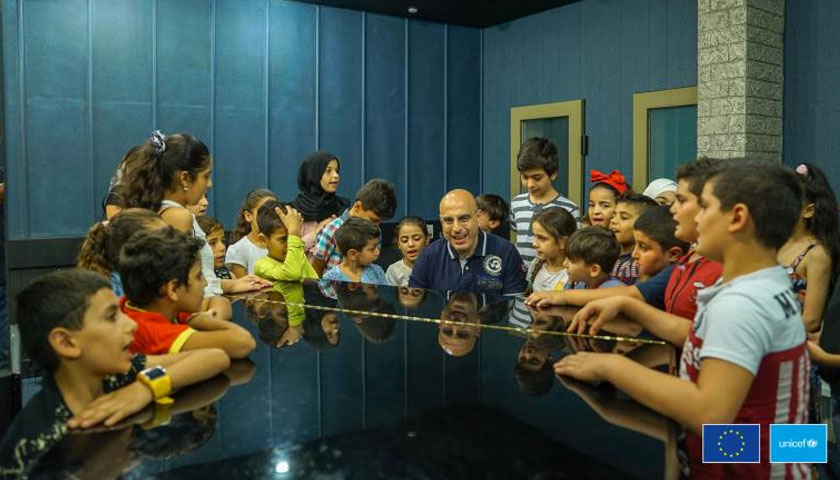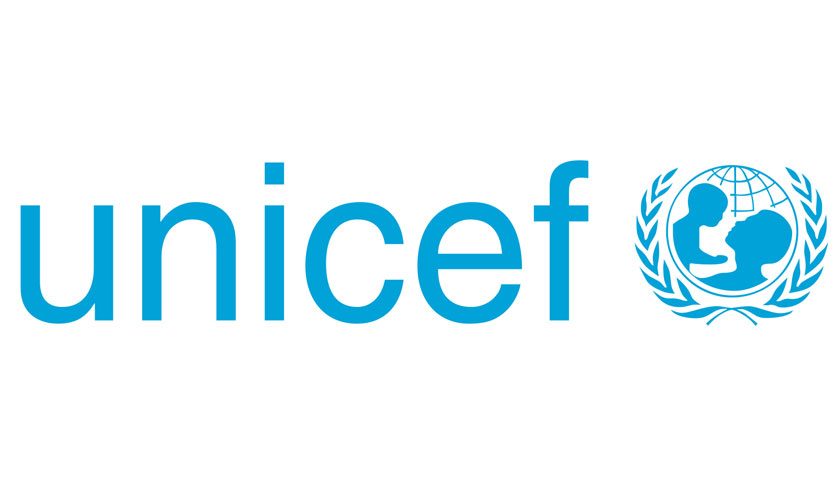“Today is the best day ever. Because I had fun, I sang and learned. I was captivated. I went to another world. Like a dream!”
- Assia Mohammed, 11, from Aleppo, now living in Turkey
To mark eight years since the start of the war in Syria, UNICEF is launching its first ever children’s songs album. Featuring children from Syria and neighbouring countries, the album revives old children’s songs originally produced in 1976.
“Children from Syria, Lebanon, Jordan and Turkey are learning together and are forging friendships through this project,” commented Michael Köhler, Director for the Southern Neighbourhood at the European Commission’s DG NEAR. “Supporting education for children from refugee and local communities is a key priority for the EU. Enabling the young generation to attend school and music workshops together also helps create stronger ties between them, which is important as these children are the building blocks for their societies’ and the region’s future.”
The songs are all-time regional favourites written and composed by the world-famous composer Elias Rahbani during the war in Lebanon. Rahbani is a composer of 6,500 musical pieces. His sons Jad and Ghassan sang and recorded these same songs when they were children.
With generous support from the European Union Trust Fund in Response to the Syrian Crisis, the EU “Madad” Fund, UNICEF and Jad Rahbani held 11 workshops for nearly 300 children, including children with disabilities, to train them and record the re-arranged version of the songs. The workshops included Jordanian, Iraqi, Lebanese, Palestinian, Syrian and Turkish children.
“I remember the impact these songs had on me when I was a child and how much they helped me overcome the fear I felt during the war in Lebanon. This is a very special project and I do hope that this album will bring joy to children and fill their hearts with positive energy,” said Jad Rahbani.
This project is part of UNICEF’s core commitments for children affected by the crisis. UNICEF provides psychosocial support as part of its package of assistance in response to conflicts and crises. The eight-year-long war in Syria means that 8 million children are now in need of assistance including psychosocial support.
“Syrian children have endured what no one should witness. Many are left with invisible scars. Psychosocial support including through a project like “11” with music and art has proven to help children cope with the shocks they’ve lived through and gradually reconnect with their childhoods” said Geert Cappelaere, UNICEF Regional Director for the Middle East and North Africa. “Without such support, children risk carrying their wounds unhealed with severe consequences when they become adults”.
In the Syria crisis, UNICEF reached 757,000 children with psychosocial support inside Syria and in neighbouring countries. This includes providing opportunities to play, sing, learn and engage in sports and arts.
“11” includes children’s songs about education, the environment, family ties, nutrition, peace and reconstruction. UNICEF hopes to extend the album’s reach beyond children affected by the crisis in Syria to reach as many children as possible across the Middle East and North Africa.
UNICEF has put in place an ambitious roll-out plan to distribute 1 million copies by the end of 2020. Free of charge, the album will be delivered to schools, clubs, music academies and recreation centres across the region.

